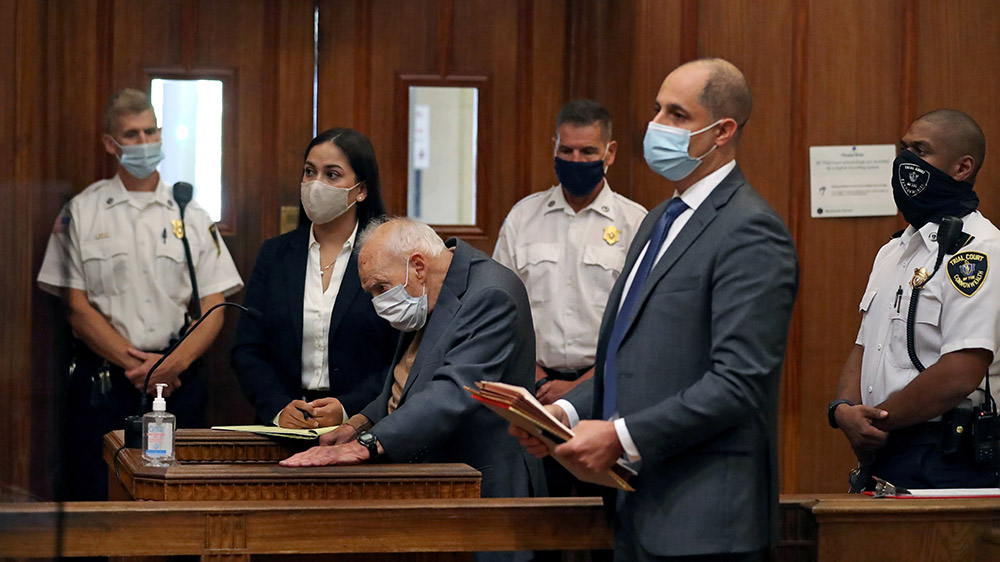
WASHINGTON — A Massachusetts judge ruled Aug. 30 that Theodore McCarrick, a 93-year-old former cardinal, was not competent enough, due to advanced dementia, to stand trial on state charges of sexual abuse.
Dedham District Court Judge Paul McCallum, who announced the ruling, granted the prosecution’s request to dismiss the charges against McCarrick for sexually assaulting a teenage boy in Massachusetts in 1974.
McCarrick was also charged in April with sexually assaulting an 18-year-old in Wisconsin in 1977.
The alleged Massachusetts assault happened at a wedding reception at Wellesley College. The accuser, who was 11 years old at the time, told police that the former prelate also continued to abuse him years later.
During the Aug. 30 hearing, Dr. Kerry Nelligan, a forensic psychologist, said McCarrick suffers significant cognitive deficits and suffers from dementia.
A report by The Associated Press said Nelligan testified that McCarrick not only “currently has these deficits,” but she added that he was not able to recall what had been discussed from one hour to the next, and no medications could help that.
Without being able to remember discussions, he could not participate with his lawyers in his defense, she said.
McCarrick, the only U.S. cardinal ever charged with sex crimes, appeared via a video link during the hearing but did not speak. He has previously denied allegations against him and pleaded not guilty in 2021 in the Massachusetts case.
In February, McCarrick’s attorneys asked the court to dismiss the Massachusetts case, saying a professor of psychiatry had examined him and concluded that he has dementia, likely Alzheimer’s disease.
At that time, lawyers said McCarrick had a limited understanding of the criminal proceedings against him.
Four months later, an expert hired by the state of Massachusetts to conduct an evaluation of McCarrick similarly said the former cardinal was not competent to stand trial on the criminal sex abuse charges against him in the state.
McCarrick was laicized by Pope Francis in 2019 after an internal investigation found he had abused minors and seminarians for decades.
Mathew Schmalz, professor of religious studies at the College of the Holy Cross in Worcester, Massachusetts, said the judge’s decision “will hurt victims, to be sure.”
He said the bigger issue is “why warnings about McCarrick went unheeded for so long. The investigation into McCarrick shouldn’t end with the prosecutors’ decision in this specific aspect of his case.”
Jeff Anderson, whose firm Anderson and Associates has represented thousands of sexual abuse victims over the past 40 years, and currently represents about seven survivors who say they were abused by McCarrick in New York and New Jersey, said the decision that the former prelate is not able to stand trial “comes as no surprise.”
He also noted that just because the former cardinal cannot stand trial “does not mean the survivors and all their families betrayed by him cannot pursue an authentic measure of justice.”
The group Survivors Network of those Abused by Priests, known as SNAP, said their “hearts go out to McCarrick’s accuser. We stand in solidarity with him and commend him for his pursuit of justice. We believe a verdict of guilty would have been rendered had the case been allowed to proceed.”
The group emphasized that the case is still open in Wisconsin where charges were filed against McCarrick and said they hoped the courts in that state “will reach a different decision.”
